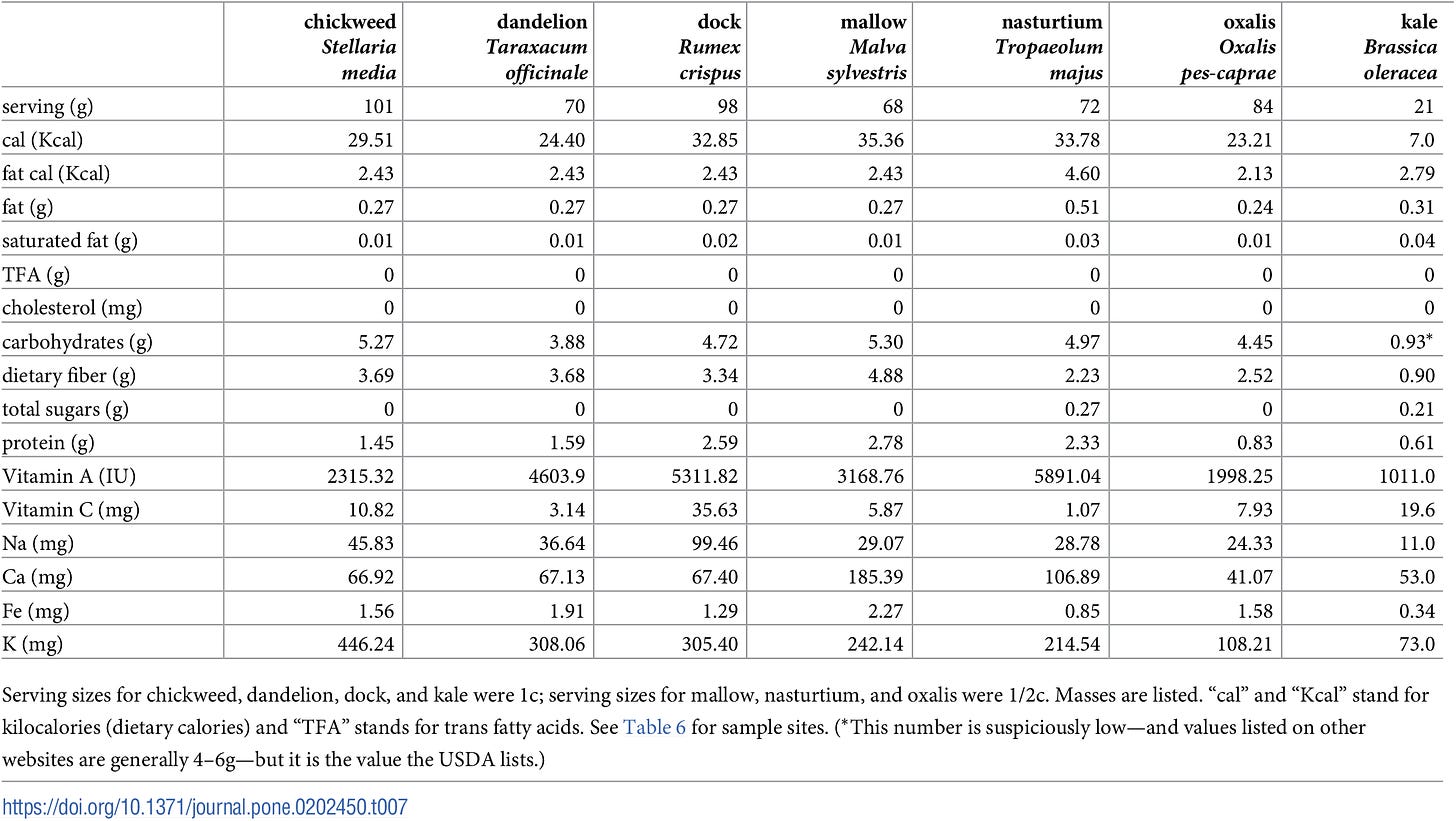Wild, Safe, non-Organic Greens
So I hang out in several online groups intended to help people learn to identify plants. Some of those are tilted toward identification and determination of edibility. If there's one thing I've learned from my time lurking (and occasionally offering an ID) it's that people ought to be dead, a lot. Misidentification of wild edible plants is rampant. And, mind you, most of the time it's only going to give you a bellyache, or worst case, make you wish you were dead while your body evacuated the unwanted substance with all speed. But there are some plants that should not go in the mouth, on the skin, or (dear ghu, people, do you have to get high on everything and anything?) in the lungs.
However, that being said, the thing that made me facepalm in the last little while was the cautionary addendum someone made when talking about eating backyard weeds 'did you use pesticides or fertilizers? It might not be safe to eat!'
Lady, not everything natural is safe and nutritious. Good on you for realizing that much. However, not everything organic is instantly safer and more nutritious than the green stuff you can pick in your own yard. Being available swaddled in Organic stickers at the high-dollar supermarket does nothing other than make your pocketbook slimmer. So yes, eat the dang weeds from your yard. Even if you did happen to use fertilizer and pesticides. Because if you used those according to the directions, and you wash what you pick, it's fine. Really.
Check out this study of urban weeds, some growing in heavily contaminated soils, which were found to be perfectly safe when washed with tap water. Your yard, I can almost guarantee, is cleaner than San Francisco is. Organic growers also use pesticides and fertilizer, and you should wash that expensive produce, too, because a lot of what they use is likely to be more harmful than the 'non-organic' synthetic chemicals traditional farming relies on. Organic farms use animal manure for fertilizer, and if they do so improperly, fecal bacteria is going to be on your produce - even if they use it properly, your contamination risk is higher than with conventional growing methods. Improper fertilizer and pesticide use is always a problem, in any method. But nothing about 'organic' makes it safer than conventional modes. As for the presence of Salmonella and E. coli on your organic produce? Well, if you feel better spending the extra money, just make sure you wash it and practice sanitary handling habits. Just like you would if you picked weeds in your yard to eat.
Moving past the superficial, this study on the urban weeds also provided some data I had been looking for. The nutritional value of weeds, versus the currently faddishly popular Kale. Want iron? Dandelion and Oxalis (wood sorrel) make Kale look like a piker. Trying to up your protein intake? Consider Mallow, or Dock. Keep in mind with Dock, however, that it's Vit. A content is sky-high, and it is possible to overdose on Vit. A, so don't consume it often. Looking to build bone structure with more dietary calcium? Nasturtium and Mallow are the weeds you want (and both have pretty flowers, so they are worth working into your edible landscaping).

As for me, I use a combination of organic and conventional growing methods. There's something to be said for free horse manure, no matter the possible microbial load. And you really, really ought to age it for at least a year, or you will have weeds like nobody's business when you spread it on your garden. It's also convenient when you want to control weeds over a large area to use pesticides: and use according to the labeled directions is perfectly safe, no matter the chemophobic hysteria of the media.
So eat your weeds!




